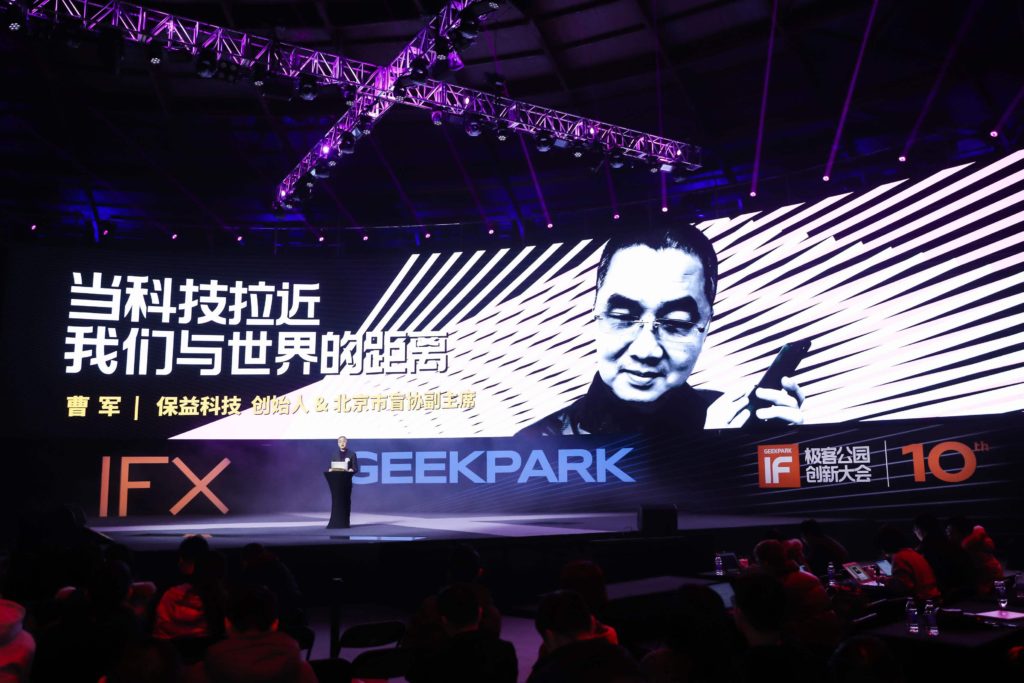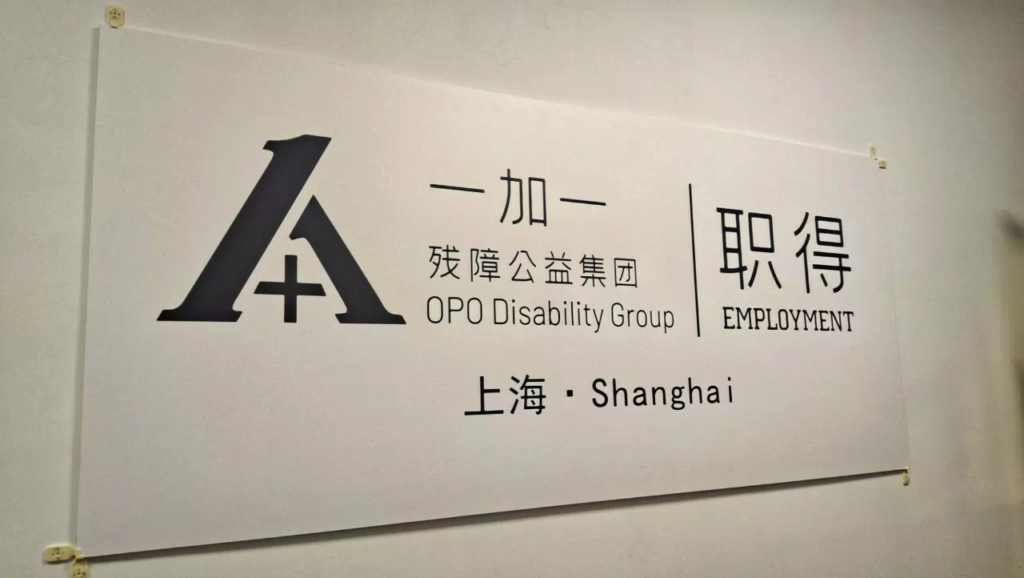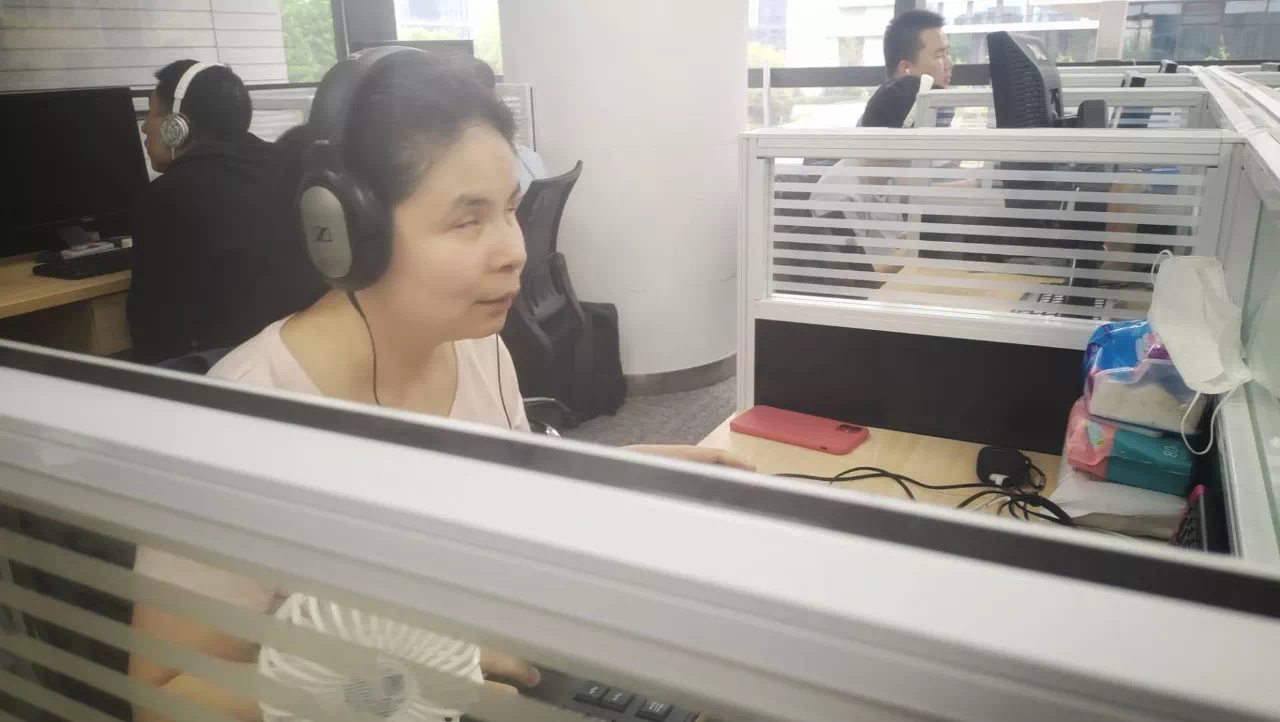The appearance of new technology has brought more possibilities for visually impaired people in China. How is changing their life and whether is the key driver for those possibilities?
A snowy day in October, 2018, is the most memorable day in Na Li’s life. She walked into her office, wore headphones and skillfully operated the computer with screen off. With the quickly voiceover instruction from headphones, her fingers were rapidly click on the keyboard.
As one of the first visually impaired employees working for Internet company, Na Li’s job is provide support for the artificial intelligence speaker, which we can say instruction like “turn off the light” and it the AI speaker can do. She give a classification for users’ voice instructions and labelling them so that the AI system to learn those. With the development of artificial intelligence, there is an increasing demand on this job and rely on screen reading software, visually impaired people have the ability to finish it.
Recalling her first day at work, Na said, “I was so excited to stand in front of a skyscraper. I could have a nine-to-five job just like ordinary people.” Shanghai’s subway is crowded, especially at rush hours, “I felt that I was squeezed into a meat pie,” but when she thought that she could work as ordinary people, she felt she is full of power. She also get a sense of achievement because she could train other colleagues with her experience.
Na said, “For me, it’s not just a job or an income, but more importantly, it’s a platform for me to connect with the mainstream society.” However, it was not easy for her to get this job. She had applied for many jobs before, including clerk in ordinary companies and telephone operator, but when they saw Na’s situation, they always say, “sorry, we need computers to do this job.” She felt aggrieved because she knows how to use a computer but many companies don’t want to give her a chance to show that.
Although people like Na in China who received training and worked with computer is still in a small part, with the popularity of screen reading software installed in smartphones and computers and the solution of compatibility problems on office software, even the help of commonweal organization, more and more visually impaired people are actually able to enter the enterprise. Na’s team, which currently has 27 members, is working for a project of China’s leading Internet company Xiao Mi and have cooperation with Qualcomm. As a blind engineer, Na witnessed the progress of technology, she said that, training time has been greatly reduced, and on average, one week can be started.
With the popularity of digital products among visually impaired group, many softwares that assist visually impairments to use appeared. Jun Cao is a visually impaired person, but he also has an identity, the CEO of “Benefit listening”, who developed the earliest and most widely used screen reading software in China. It is a software that can read the screen of digital products and has a special usage for visually impaired people.
Believing that “only the blind can understand the problem of the blind,” half of the staffs in Jun’s company are visually impaired and the office was paved with striking tactile pavements. A decade ago, he gave up his own massage store (blind massage: the most common job for visually impaired people in China) and started a technology company that designs and tests software for the blind. He said, “in China, a blind man who has not work as a massage is not the real one.”

At that time, he accomplished what we thought impossible. Relying on students to help him to read, he recited the C++ code, a program that an engineer should learn and completed self-study how to program. For ordinary people, it even takes about one year to learn, he used only six months. In cooperation with another engineer, the computer and phone can finally “talk”. In 2014, he demonstrated his screen reading software to Bill Gates, who tapped him on the shoulder and said, “Your product is great and insist on doing it.” It gave Jun a great motivation.
Except for basic screen reading software, a growing number of Internet companies joined the more advanced visually impaired community software development. More and more companies begin to concern about visually impaired people’s requirements. According to the latest report on the career development of disabled people in China, thanks to high-precision image recognition services provided by Internet companies such as Tencent and Baidu, some computer and mobile phone screen reading software successively realized the reading of pictures. At the same time, the application of artificial intelligence give a strong support for the research and development of information accessibility products, for example, Tencent adds a special “accessibility AI” entry for the visually impaired that clear barriers when visually impaired people use these new technology.
At present, three AI technology scenarios have been opened up: first, from image to voice, through the multi-layer deep neural network to recognize the content of the picture and then it will logically organized into language to display to the visually impaired people; second, speech synthesis. Through machine learning and training, a paragraph of text can be recited to a specific role in a customized way to support the visually impaired users and make them experience text-to-speech scene service. The third is optical character recognition(OCR), which uses AI technology to identify text in pictures, making it more convenient for visually impaired users to obtain information in the field of text detection such as instructions and signs.
Although the progress of technology means more possibilities for the visually impaired to find jobs, the reality in job market is cruel and unfair. Cong Cai, the head of “One Plus One Charity”,which is a public welfare organization to offer help to the visually impaired. This organization provide job vacancies information for visually impaired people and they also build a strong relationship with some companies. He said that his mailbox is full of resumes across the country, but there are still not enough positions for them. Many companies know that we provide them with disabled talents, and they choose to refuse to cooperate, even though we have professional visually impaired members to test the feasibility of the position and receive targeted training.

Cong said, “there is no doubt that technology does give more possibilities , because it broke the boundary of visually impaired people and social communication, make them easier to integrate, for the visually impaired in more aspects such as reading, shopping and traveling, but the possibility just possibility, behind the technology, the problem is people.”
After practice, they have proved that blind engineer is a job suitable for visually impaired people, Cong said, first of all, it is relatively boring and should do repetitive thing so that the job mobility is more frequent for ordinary people, but for visually impaired people, is more stable. Secondly, the job requires a great deal of patience, they wouldn’t be affected by sensory stimuli and relatively easier to focus. Thirdly, in terms of efficiency of using keyboard, visually impaired people are not inferior to able-bodied people, as long as there are corresponding supporting screen reading software and system, they are fully competent.
However, the database involved is crucial for artificial intelligence enterprises, for them, they need to pay great trust to their partner and staff, Cong said, that is the reason why they contact with many domestic companies but hard to find one who is willing to accept visually impaired.
Cong said, it means that there are still many challenges for employment of visually impaired people. The poor infrastructure makes if difficult for the blind to get around. “How can you go to work when you can’t even leave home?” In addition, segregated and massage oriented education system deprive our rights to develop abilities and interests, inequalities exist in almost all the exams and recruitments fro the visually impaired group, and frequent news about guide dog was rejected on the public transportation, as well as the affect of long-term stereotype leads to self-identification problems. He said, “we still have a long way to go.”
“It is not difficult to build a barrier-free platform system, what is important is whether enterprises would like to take up the responsibility,” he added.
The employment situation of the visually impaired group is still in the transition stage, and most of the workers still need to rely on the outsourcing of some institutions or enterprises rather than truly joining and becoming formal employees. Information Accessibility Society is the first in mainland China and also the only company committed to the barrier-free environment construction of NGO. Rui Zheng, who is responsible for the popularization of accessibility, said, information accessibility can provide general solution for visually impaired people, including technical feasibility test, bug-fixes and provide instructions for Internet company. He said, “as for the employment of the visually impaired, technology and social inclusion is a supplement for each other that are inseparable.”
Expect for assistant technology—screen reading software, We media is also an important part of social attitudes for the visually impaired people. It means that visually impaired people can record their daily life and send it online. Many visually impaired people especially young, would like to share their life on social media in spare time. For them, they are no longer fear the gaze of others on the Internet and the public can also dispel misconceptions and prejudice for this group.
